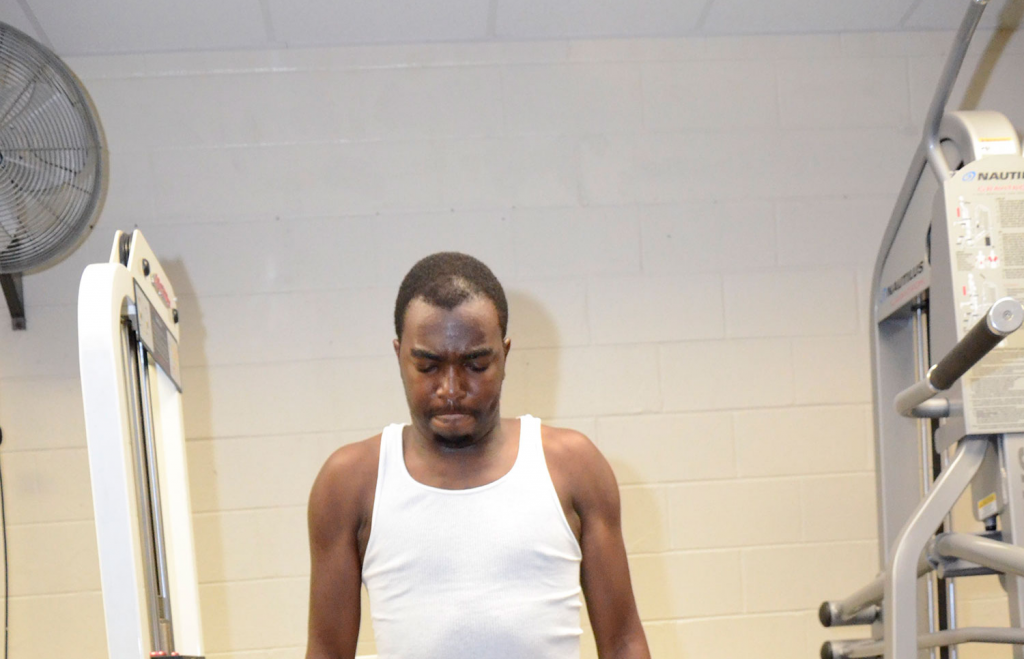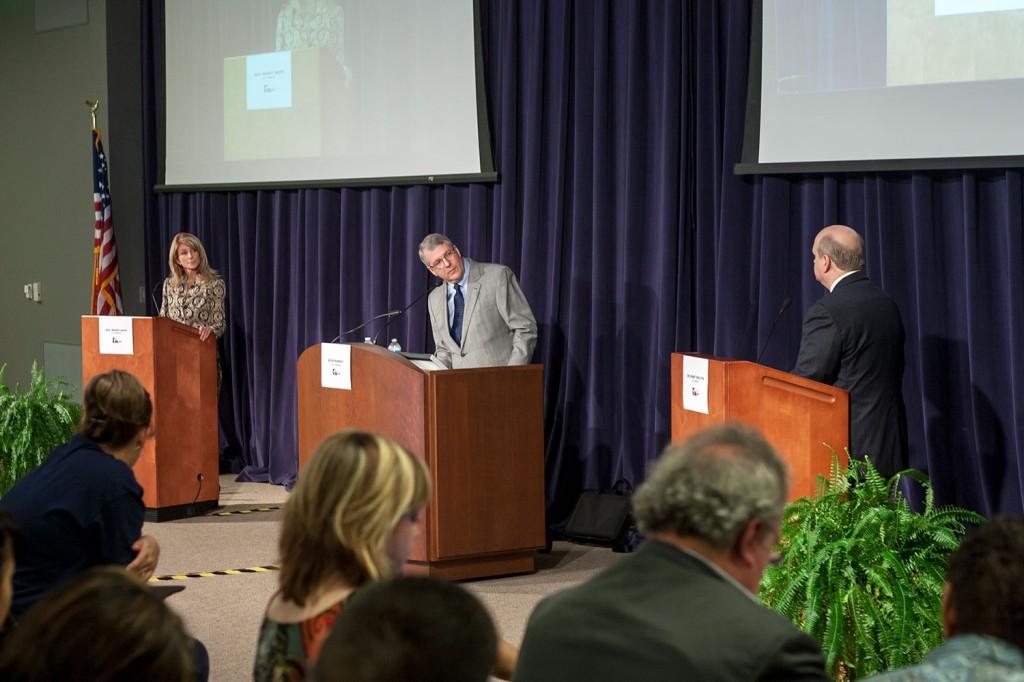At around lunchtime Oct. 5, TR students and faculty members met to discuss the campus common reader, Hamlet’s Blackberry.
Introduced to campus by TR Campus president, Tahita Fulkerson, the book questions today’s connectivity with devices and technology. William Powers, the author, compares today’s societies to historic cultures, illustrating that ancient civilizations have had the same problems with technology. Powers also discusses finding balance between the positive and negative effects of technology and individual reliance on electronics and also urges readers to disconnect from these gadgets with suggestions and ideas.
There were seven panelists. Justin Brumit, TR English associate professor, led the discussion and started with a video from YouTube.
“Try not to laugh because if you do, you’ll feel very guilty,” he said.
The video was a security camera capturing a woman walking out of large department store in a mall. She was so enthralled with her texting that she fell into a fountain, shopping bags, phone and all. At the end of the video the woman was nearly in tears talking to a news reporter, explaining that she didn’t know her friends from church would be calling her saying a video was up of the incident on YouTube just hours after the incident.
“I saw the comments that were left and saw how they laughed, and I didn’t think it was funny,” she said.
Brumit said he used this video to start because he wanted the audience to understand two things: as a society we can be so connected that we don’t notice what’s around us and so connected that there is no room for discovery anymore.
Panelist Bryan Stewart, TR vice president of academic affairs who said he loves his iPad and iPhone, said the book’s first 70 pages help readers evaluate their involvement with technology gadgets.
“I would not give myself a very good grade,” he said.
Recently, when TCC’s system went down for 14 hours Stewart was relieved to not be in correspondence with work for a bit. But when he re-connected, he had 146 emails.
“That’s the down side of being off,” Stewart said. “It’s tough when you have people whom you connect with and depend on you to get back to them.”
The panelists agreed that when they are forced to disconnect, they feel lost, but after the initial loss they begin to enjoy their freedom.
Alex Potemkin, TR librarian, said he has neither a television set nor a texting service on his cell phone.
“My only interaction with the outside world is high-speed internet, which I do stay connected to but … I don’t have to be. I do try to disconnect with technology as often as I can,” he said.
TR English professor, Jim Schrantz, loves “anything that beeps” at him. He doesn’t believe we can be too connected, but thinks there’s a line that people can cross, and he has found a way to prioritize his connections so that he’s not overloading.
One film student described the dynamics of living with her mother-in-law, who’s nearing 70.
“My whole life is technology essentially,” she said. “I do everything literally on my tablet, on my computer, on my iPhone, to the point where I don’t even watch the news like I used to. The other day [my mother-in-law] said ‘You know, Amber, you don’t do anything but sit on those devices. You’re not living anymore.’ And then I thought: when was the last time I picked up a real book?”
Individuals in society gravitate toward people with similar ideas creating their own “consensual reality,” said Potemkin. This reality keeps those in it relatable to each other but there’s never challenge to insight.
TR business instructor, Maricia Johns, pointed out that nowadays people want to speak to another person only when they’re upset.
“We don’t want computers when we’re complaining,” she said. “We want to press zero so we can speak to someone.”


























